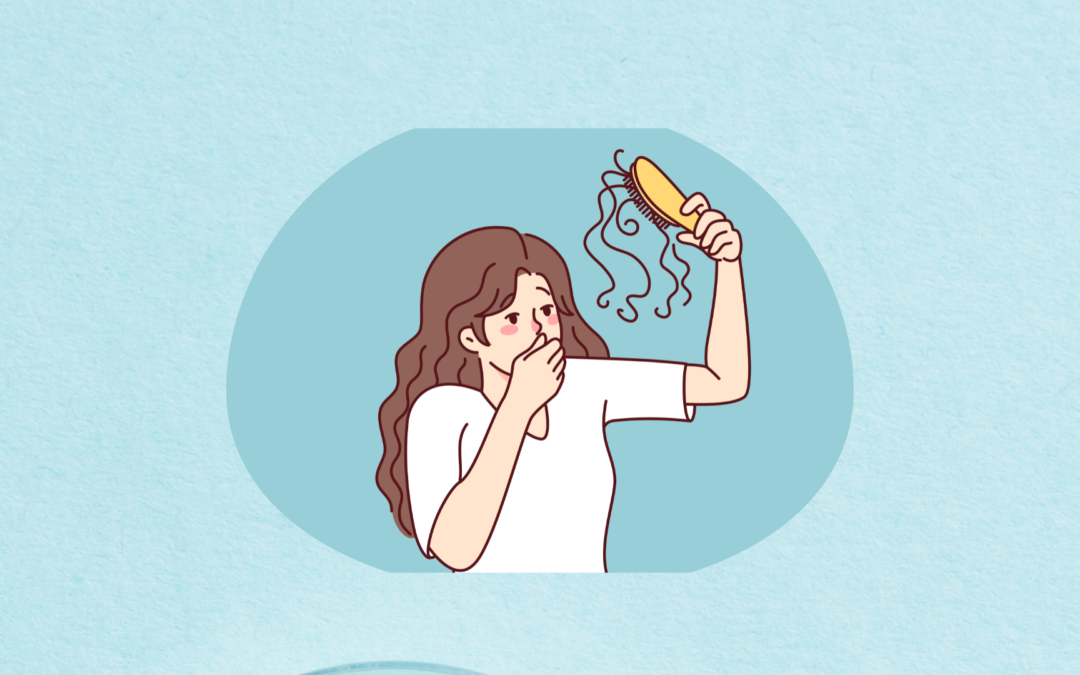Hair fall can be a troubling experience, but the good news is that there are numerous strategies to combat it and promote healthier, stronger hair. Whether your hair loss is due to genetics, lifestyle choices, or medical conditions, these tips can help you mitigate the issue and improve your hair health. Various factors can contribute to hair loss, ranging from genetics to lifestyle choices. Let’s delve into the common causes of hair fall and how they impact your hair health.
1. Genetics
One of the most prevalent causes of hair loss is genetics. Hereditary hair loss, known as androgenetic alopecia, affects both men and women. If your parents or grandparents experienced hair thinning or balding, there’s a high likelihood that you might too. This type of hair loss typically follows a predictable pattern and can start as early as your teenage years.
2. Hormonal Changes
Hormonal fluctuations play a significant role in hair health. Conditions like pregnancy, childbirth, menopause, and thyroid problems can disrupt hormone levels, leading to temporary or permanent hair loss. For instance, postpartum hair loss is common due to the sudden drop in estrogen levels after childbirth.
3. Medical Conditions
Several medical conditions can contribute to hair fall. Autoimmune diseases like alopecia areata cause the immune system to attack hair follicles, resulting in hair loss. Scalp infections, such as ringworm, can also lead to hair thinning. Additionally, chronic illnesses and surgeries can trigger temporary hair shedding.
4. Medications
Certain medications have side effects that include hair loss. Drugs used for cancer treatment, arthritis, depression, heart problems, and high blood pressure can all contribute to hair thinning. If you suspect your medication is causing hair fall, consult your doctor for possible alternatives or solutions.
5. Stress
Physical and emotional stress can push hair follicles into a resting phase, leading to increased hair shedding. This condition, known as telogen effluvium, is usually temporary and resolves once the stress is alleviated. However, chronic stress can prolong the issue, making it essential to manage stress effectively.
6. Nutritional Deficiencies
A balanced diet is vital for healthy hair growth. Deficiencies in essential nutrients like iron, protein, vitamin D, and zinc can weaken hair and cause it to fall out. Ensure you’re consuming a varied diet rich in vitamins and minerals to support hair health.
7. Age
As we age, our hair naturally becomes thinner and less dense. The rate of hair growth slows down, and hair strands become finer. This natural aging process can contribute to noticeable hair loss, especially in individuals with a genetic predisposition.
8. Environmental Factors
Exposure to environmental pollutants, harsh weather conditions, and excessive sun can damage hair and scalp, leading to hair fall. Additionally, frequent use of hair styling tools, chemical treatments, and tight hairstyles can weaken hair and cause it to break or fall out.
9. Sudden Weight Loss
Rapid weight loss or crash dieting can shock your system and lead to hair loss. When the body is deprived of essential nutrients and experiences a significant weight change, it can divert nutrients away from hair growth to support vital functions, resulting in temporary hair shedding.
Conclusion
Hair fall can stem from various causes, each requiring a different approach for effective management. If you’re experiencing significant hair loss, it’s essential to consult a healthcare professional or a dermatologist to identify the underlying cause and receive appropriate treatment. Understanding and addressing these common factors allows you to take steps towards healthier, fuller hair.

